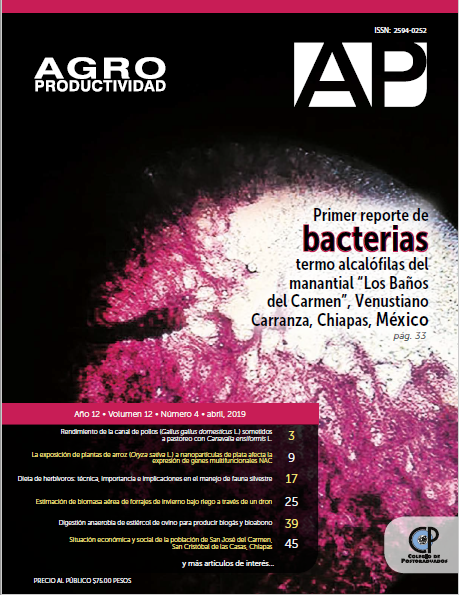GLYCEROL METABOLISM IN RUMINANTS
Main Article Content
Keywords
Propionic acid, glucose, glicerol, rumen.
Abstract
Objective: To analyze the metabolism of glycerol in ruminants, their precursors and the final products of their metabolism. Likewise, the repercussion that can have at the microbiological level in the rumen.
Design / methodology / approach: In this work, research was analyzed in which glycerol was provided to the diet of ruminants and the precursors synthesized in the animal from this ingredient.
Study limitations / implications: Currently, glycerol, a byproduct of biodiesel production, is used as an energy substitute in diets for ruminants. Its high energetic value is due to gluconeogenic characteristics, since the ruminal fermentation of glycerol produces propionic acid which can be transformed in the liver and kidneys to glucose, which is used by the animal as an energy source.
Findings / conclusions: Different studies show that glycerol can replace grains, such as corn (Zea mays L.), in diet for ruminants, without having negative effects on the rumen's ecology.

